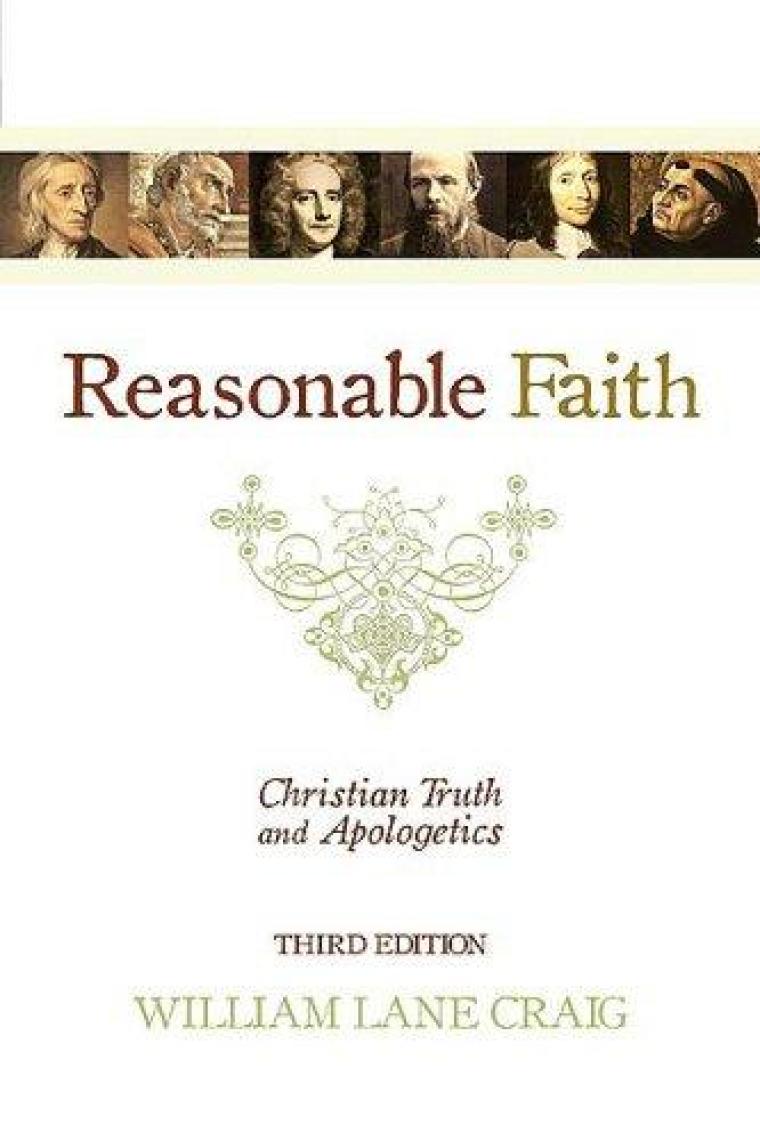
He also earned twin Master's degrees in Philosophy of Religion and in Church History and the History of Christian Thought. So he clearly is adept at both theology and philosophy. And he is also well abreast of the recent developments in the philosophy of science and related fields.
This is the third edition of this important volume. The first edition came out in 1984, with the second appearing in 1994. Book lovers (especially those on a limited budget) always must ask whether a new edition of a book is worth getting, if an earlier edition is already owned. In this case, the differences between the second and third edition make it well worth purchasing.
The second edition was 350 pages in length, while this edition is 415 pages long. But the second edition had a 40-page chapter on the historical reliability of the New Testament written by Craig Blomberg which has been removed in the newest edition. Thus there are over 100 pages of new material here. For example, the 50-page chapter on the existence of God in the second edition is now expanded into two chapters totalling 110 pages.
Obviously new developments, such as the publication of Richard Dawkins' The God Delusion, and new concepts in the fields of science, physics and cosmology are included in this new edition. But the book still remains a solid and comprehensive case for Christian truth and an invaluable resource for taking on the various objections to theism in general and biblical Christianity in particular.
Other chapters in this volume examine the problem of historical knowledge; the shortcomings of atheism and materialism; the nature of faith; the case for objective morality; the problem of miracles; the messianic awareness of Jesus; and the case for the resurrection.
Consider just one issue – that of morality and various moral arguments for the existence of God. Craig makes the case that if God does not exist, it is extremely difficult to find a foundation for objective moral values and duties. Most people, when pressed, will admit to some objective moral values that are independent of our thoughts or feelings about them.
How can an atheistic or a materialistic worldview account for such moral values and obligations? The more honest naturalists and atheists admit that morality seems to make little sense in their system of thought. Atheistic ethicist Richard Taylor for example says that morality makes sense if there is a moral law-giver (God), but is "not understandable" if no such God exists.
Of course as Craig reminds us, this is not to say that atheists cannot be moral or believe in moral values. It is just that they do not have a solid philosophical basis to do so, given their worldview. Thus a person can seek to live an ethical life without belief in God.
"The argument is not that belief in God's existence is necessary for the objective reality of moral values and duties," says Craig, "but that God is necessary for the objective reality of moral values and duties." People here tend to confuse the reality of morality with beliefs about morality. Moral ontology, in other words, differs from moral epistemology.
Craig argues that various attempts to come up with a non-theistic basis for morality end in failure. Some seek to ground morality in herd behaviour or the replication of selfish genes. Some argue that morality is illusory, fostered in us by socio-biological evolution. Some, like Nietzsche or Sartre, simply give up, and admit that without God we are left without morality as well.
It appears that in a world without a divine law-giver, morality must ultimately be relative, subjective, and based solely on personal and/or cultural preference. But this will not do, since most people will admit that some objective moral acts – such as rape or torturing babies for pleasure – are always wrong, and that these beliefs are not just based on personal taste or cultural consensus.
People may give lip service to cultural relativism, but in the end they tend to agree that some objective moral values and obligations exist. The question then is, which worldview best accounts for this? Craig argues that theism in general and Christianity in particular best does the job here.
Finally, it must be noted that this book – or at least parts of it – is not for the intellectually feint-hearted. For example, the chapter on miracles contains fairly complex and detailed philosophical reasoning, and the chapters on God's existence, including the elaboration on cosmological and teleological arguments, feature scientific and philosophical concepts which some may find heavy going.
But each chapter concludes with a practical application section. Craig at heart is an evangelist and this book is designed to help believers to not only deal with intellectual objections to the Christian faith, but to point people to a Saviour. Thus a careful reading of the book will pay off handsomely.